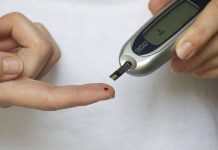Every woman knows that one day she will go through the process of her ovaries reducing their function. Her hormones shifting dramatically and she will finally cease to have a monthly period. But there are so many myths out there, it can be difficult to know what to expect. No two women are alike and every woman will experience it in a slightly different way.
The Top 10 Menopause Myths You Should Not Believe and the Truth Behind Them
“While about 75% of women do experience hot flashes, not every single woman does.”
1. It Happens When You’re 50
A popular myth is that these shifts of hormones begin at the age of 50 for everyone. While the average age is 51, there are many women who experience menopausal symptoms in their 40s or even into their late 50s.
2. It Happens Quickly
This is a common misconception that can leave some women exasperated when they find that their menopausal symptoms drag on for much longer than they anticipated. For some, it can take years in order to fully transition.
3. Everyone Experiences Hot Flashes
While about 75% of women do experience hot flashes, not every single woman does. They can also experience drastically varying degrees of intensity and duration. Some women may only have mild symptoms.
4. Hot flashes Are The Only Symptoms
There are a variety of symptoms associated with this transition. Every woman will be different in how it affects her life. You can experience altered sleep patterns or quality, changes in energy levels, mood changes, vaginal dryness, and even joint pain.
“Some woman may have unpleasant symptoms, while others may be mild.”
5. Hormone Therapy Cures Symptoms
Some women find relief from treating their menopausal symptoms with hormone replacement therapies. These can relieve some of the uncomfortable symptoms, reducing hot flashes, improving sleep patterns, or increasing energy levels.

6. Your Sex Drive Disappears
While the decline in sex hormones can cause a dip in libido, typically it is other factors that cause a decrease in sex drive. Moodiness, vaginal dryness, irritation, and low-energy are more likely to be the cause of this.
7. You Gain Weight
Whenever your hormones shift, your metabolism can be affected. This can slow down digestion and lead to weight gain. But even so, there is no scientific evidence that points to menopause symptoms leading to weight gain or obesity.
8. It Is Always Awful
This time of your life does not have to be awful. Some woman may have unpleasant symptoms, while others may be mild. But for every woman, this can be a time of inner reflection and working to take better care of your body.
9. You Can Not Treat Hot Flashes
There are many ways to effectively work to reduce the unpleasant symptoms of hot flashes. Many woman finds success by taking black cohosh supplements or even cognitive behavioral therapy.
10. Prescription Hormone Replacement Is Dangerous
While this may be true for some women, it may not be for others. Depending on your unique hormonal composition, you may have a different reaction to it. Another option is to take herbal supplements that can have a regulating effect on your hormonal levels.
“Speaking to an expert is important because they are someone who has seen many different women’s experiences.”
How to Know if a Menopause Information is Reliable?

Look for information that is backed by scientific data. You can also see the counsel of women who have been through it before and listens to their stories. Avoid accepting gossip from women who have never gone through it.
Why It’s Important to Always Ask an Experts’ Opinion?
Speaking to an expert is important because they are someone who has seen many different women’s experiences. If someone is not an expert, they may not have a very good understanding of all the varieties there can be. Someone with experience can more reliably provide a dynamic understanding of this time in your life.
Conclusion

There are many menopause myths that can cause misunderstanding and false expectations for women. Educating yourself is the best approach for your health. A reliable way to predict when you will begin to go through menopausal symptoms is to look at your grandmother or mother and when they went through this change. But environmental factors would impact when it happens, such as smoking, chemotherapy, or surgery. Officially it occurs when menses cease to happen for one full year.
Sources & References:





















